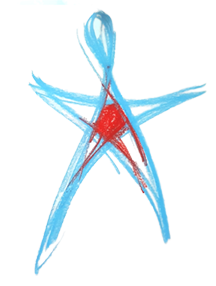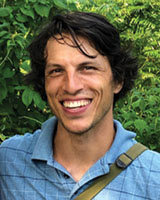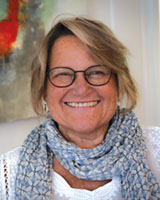
Creating Together Groups
Novalis: “The World Must Be Romanticized.”
Creating Together Group A
Facilitators: Bruce Donehower
Rudolf Steiner placed great emphasis on Novalis, speaking of him often. In his Last Address Rudolf Steiner emphatically points to Novalis, that he would be very important for our 21st century. Novalis points to the future and those who work with him often receive strength and inspiration from him for their own initiatives.
Scroll down to learn more about Novalis.
This Creating Together Group will explore the work and biography of the poet Novalis (Friedrich von Hardenberg; 1772-1801). Our group will work toward a presentation of a Novalis fairytale and related texts, such as poems. Our primary text is the fairytale Hyacinth and Rosebud. Depending on the configuration of the group, we also may use selections from the fairytale Atlantis, selections from the Fairytale of Eros and Fable, selections from the novel Heinrich von Ofterdingen, and various poems and fragments by Novalis. We will use the texts translated by Bruce Donehower.
Significant in the context of this Festival is that Novalis situates the action in the medieval setting of Parzival, creating a literary affinity between Wolfram and Novalis.
This group is a collaborative effort to stage a dramatic Festival event that combines all the sister arts and includes festival participants. It has the title taken directly from Novalis: “The World Must Be Romanticized.”
Section Affiliation: Literary Arts and Humanities, Visual Arts, and Performing Arts Sections
Facilitators: Bruce Donehower
Number of Participants: Open to All
Advance Participation: Leading to the Festival an advance planning group will be working to prepare for the event. Anyone wanting to creatively participate in this planning process is welcome to participate. Also required are specialists: Eurythmists, Visual Artists, Musicians, Speech Artists, Singers, Actors, Montebanks, Stage Technicians. To get involved, please contact: Bruce Donehower brucedonehower@gmail.com; Patricia Dickson patriciadickson27@gmail.com
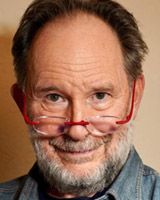 Bruce Donehower
Bruce Donehower
Bruce Donehower, Ph.D. (UC Davis), is the Collegium representative to Dornach for the Section for the Literary Arts and Humanities of the School for Spiritual Science in North America. He is is a scholar of British and German Romanticism with a special interest in Novalis. He is a poet, novelist, essayist, musician, story teller, and translator.
You will find more information about Bruce at the website that he designed for friends and members of the Section for the Literary Arts & Humanities at TheLiteraryArts.com.
Schedule
Friday, August 11, 2023
11:30 CTA1 Novalis: “The World Must Be Romanticized.”
Saturday, August 12, 2023
11:30 CTA2 Novalis: “The World Must Be Romanticized.”
7:30 Evening Presentation
Novalis: “The World Must Be Romanticized.”
Sunday, August 12, 2023
11:30 CTA2 Novalis: “The World Must Be Romanticized.”
Background for this Group
Introduction to Novalis from Bruce Donehower, Ph.D. on Vimeo.
The presentation will follow the pattern of the masque, as exemplified by Percy MacKaye. For information on the masque and Percy MacKaye, click this link.
For more background on Novalis, a five-part video series is being developed titled: “Novalis, Magical Idealism, and Rudolf Steiner’s Last Address.” Find information here.
You can start with a 20-minute introductory video.
To learn more about Novalis himself you can start with this video in which Ludwig Tieck, a very close friend of Novalis, describes Novalis (Friedrich von Hardenberg, 1772-1801) when he was alive. These are Tieck’s actual words.
For an idea of how Section Artists have performed other fairy tales by Novalis, click either of these links:
Hyacinth and Rosebud
Atlantis
For more background on Novalis:
Birth of Novalis, The: Friedrich von Hardenberg’s Journal of 1797, with Selected Letters and Documents (Book)
Novalis: German Poet–European Thinker–Christian Mystic (Book)
“Parcival & Feirefiz – A New Grail Narrative”
Creating Together Group B
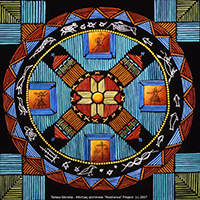
Teresa Marshall – Mikmaq World View “Resilience” Project (c) 2007
Facilitator: The Parcival Project
Throughout the duration of the Festival of Initiative, a closing ceremony celebration will be collaboratively co-created by Festival presenters and participants. Led by The Parcival Project – founder, artistic director, violinist and collaborative leader Emmanuel Vukovich, and pianist, African drummer and composer John McDowell with collaboration from the local and international artistic community, this ceremony will bring together the principal streams present at the Festival: present at the Festival of Initiative – including Christianity–both Western and Eastern (Ukrainian Orthodox), West African Gahu and and First Nations and Metis peoples from the Winnipeg and Manitoba area..
The collaborative nature of this new and original ceremony will integrate artistic and ritualistic elements including instrumental as well as vocal ensemble music, movement, spoken word, visual imagery and prayers gathered from the various cultural traditions.
The ceremony will be consecrated on the closing morning of the Festival, August 15th and It will then be brought to the Canadian Museum for Human Rights in Winnipeg where it will be presented in a public performance on August 16th with The Parcival Project’s Canadian premiere of “Parzival & Feirefiz – A New Grail Narrative of Diversity.” A digital audio & video recording of both the Festival Ceremony as well as the public performance in Winnipeg will be prepared following the Festival to share with the global community.
Section Affiliation: Performing Arts, Visual Arts, Literary Arts and Humanities, Social Sciences, and Youth Sections and The Movement for Religious Renewal
Facilitator: Emmanuel Vukovich & John McDowell
Team Members: Emmanuel Vukovich, John McDowell, Kwasi Dunyo & Sons, Philippe Sly, George Elliott Clarke, KURBASY (Ukraine) Natalia Rybka-Parkhomenko & Maria Oneshchak, TorQ Percussion Ensemble, The Parcival Project Ensemble
Number of Participants: Open to All
A committed core-team of collaborators will work together for the duration of the Festival culminating in the Festival Ceremony on August 15th, and the performance in Winnipeg on Aug 16th.
A larger community of witnesses and peripheral participants/collaborators “as the choir” may or may not be present for the performance on August 16th
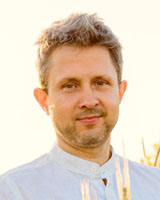 Dr. Emmanuel A.A. Vukovich
Dr. Emmanuel A.A. Vukovich
- The Parcival Project, Founder & Artistic Director
- Stony Brook University, DMA
- New England Conservatory of Music, Mmus
- Schulich School of Music, McGill University, BMus
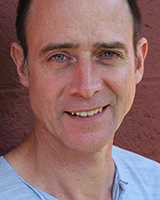 John McDowell
John McDowell
- John McDowell, achieved world-wide recognition with his soundtrack to the Academy Award winning, Born into Brothels. He also has scored several other films which streamed on various platforms such as Netflix.
- In his over 30 years in the music industry, he is established as a gifted pianist, percussionist, producer and commissioned composer and conductor in a variety of musical genres.
- He has two music composition degrees from DePaul and Northwestern Universities, and has worked extensively in many countries.
- He is also a biodynamic farmer and toured North America with the chamber music project Music for Farms.
Artistic, Social, Religious & Ritual Elements of the Ceremony
Music: Western classical instrumental and vocal music, traditional Ukrainian Folk Songs from the Carpathian Mountains, First Nations and West African drumming & singing
Speech: Poetry & story-telling – Wolfram von Eschenbach’s Parzival & the Grail myth, Ukrainian, West African and First Nations stories
Movement: Eurythmy, Ukrainian traditional dance, West African and First Nations ceremonial dance
Visual Arts: Painting a backdrop, set design, costumes, and lighting.
Literary Arts and Humanities: Wolfram von Eschenbach’s Parzival & the Grail Myth, Ukrainian & Russian Folklore, First Nations and Metis Mythology
Social Sciences Section: Canadian Truth & Reconciliation, healing racism through honouring diversity, collaborative leadership, Theory U & Youth Section: TBC
Religious Renewal: Christian Community/Western Christianity, Ukrainian & Russian Orthodox Christianity; West African and First Nations Spirituality.
Digital Production: Creation of a digital video/photo slide presentation from the Festival to be presented at the performance in Winnipeg on August 16th.
Working Together Groups
The Anthroposophical Movement, Its Biography and Future Development
Working Together Group A
Facilitators: Dr. Peter Selg and Dr. Constanza Kaliks
Since its inception one hundred years ago, the anthroposophical movement has had periods of strong development and also had to face periods of great challenge. The tension between these two has shaped one of the most important future-oriented movements of our time. With the founding of the General Anthroposophical Society during the Christmas Conference of 1923/24, and the subsequent realization of the School for Spiritual Science with its Section, this impulse for fundamental cultural change began. Through the Sections of the School these transformative influences have flowed into every field of human endeavor. In preparation for the centenary celebration, great effort has gone into reflecting on what has been accomplished and what now needs new initiative for the future. Dr. Peter Selg and Dr. Constanza Kaliks, as members of the leadership teams for the General Anthroposophical Section, the Ita Wegman Institute, and the Pedagogical Section will bring an overview of this process along with examples of the current work taking place at the Goetheanum to renew and further develop these impulses of transformation in our contemporary world.
Section Affiliation: General Anthroposophical and Pedagogical Sections
Facilitators: Dr. Peter Selg and Dr. Constanza Kaliks
Number of Participants: Open to All
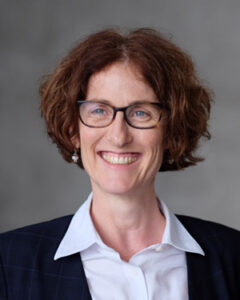 Dr. Constanza Kaliks
Dr. Constanza Kaliks
- 1967: Born in Chile, grew up in Brazil.
- Fields of study: Mathematics, Education, Philosophy
- 2014: Doctorate on pedagogical aspects in the work of Nicholas of Cues
- 1992-2011: Waldorf High-School Mathematics Teacher in São Paulo
- 1992-2011: Teacher in the Waldorf Teachers Training in São Paulo
- Since 2012: Leader of the Youth Section at the Goetheanum, Switzerland
- Since 2015: Member of the Executive Board of the General Anthroposophical Society
- Since 2020: Leader of the General Anthroposophical Section
- Since 2022: Leader of the Pedagogical Section at the Goetheanum, Switzerland
- Finishing a post doctorate
- Publications: Education and Nicholas of Cues
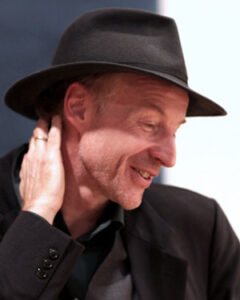 Dr. Peter Selg
Dr. Peter Selg
- 1963 Born in Stuttgart, Germany
- 1986-1993 Studies: Medical faculty University Witten / Herdecke, Berlin and Zürich
- 1993-2000 Specialized training in Psychiatry and Psychotherapy for Children and Adolescents
- 2002-2002 Scientific coworker Institute for applied epistemology and methodology in Medicine, Freiburg
- 2002-2005 Scientific coworker of the Medical Section/Goetheanum. Physician for juvenile Psychiatry at the Ita Wegman Clinic, Arlesheim
- 2006 Foundation and leadership of the Ita Wegman Archive and Institute, Arlesheim
- Since 2007 Professor of medical anthropology and ethics at Alanus University for Art and Social Science.
- Scientific coworker and faculty member Department of Medical Theory University Witten / Herdecke.
- Since 2020 Member of the leadership committee of the General Anthroposophical Section at the Goetheanum.
- Member of the Goetheanum Leadership committee.
Earth Healing Through Spiritual Agriculture
Working Together Group B
Facilitators: Alex Tuchman, Monika Pudelko and Robert Karp
When first coming into a relationship with a particular place or landscape, the questions: “Who are you? What do you need? How can I serve you?” can be a helpful doorway into discovering how to work with the land in the most healthy and balanced way. Carrying out festivals, rituals, and other earth healing activities which honor the temple of nature with openness and humility helps us awaken our senses to the unique elemental world of a particular place, breathe in the environment deeply, and build trust with the beings there. The biodynamic preparations play an essential role in this activity as well. Join us as we consciously enter into a relationship with this unique Manitoba landscape, working together through ritual, perception, observation, eurythmy, and practical work on the land.
The Working Together group will build up over these four days containing the following main elements:
- Practical work, including building a biodynamic compost pile
- Sensing and interacting with the unique qualities of the landscape with the help of biodynamic preparations and eurythmy exercises
- Deepening our understanding of the elemental beings and nature spirits and how we can support them and work more closely with them.
Section Affiliation: the Agriculture Section
Team Members: Alex Tuchman, Monika Pudelko, Robert Karp
Number of Participants: All who want to participate are welcome
Alex Tuchman
Alex is a beekeeper, educator, farmer, author, and student of nature. As the Director of Spikenard Farm Honeybee Sanctuary, Alex carries a wide variety of responsibilities on the farm, with the bees, in the classroom, and in administration. Alex arrived at Spikenard Farm in March of 2014 after three years as the Farm Manager of Loyola University Chicago’s Student Farm in Woodstock, Illinois, his home state. Alex is an active member of the Agriculture Section of the School for Spiritual Science and a consistent contributor to the biodynamic agriculture and natural beekeeping movements and regularly teaches at conferences in the U.S., around the world, and online. Alex’s book, A Lively Hive, was published in 2021, outlining the basic biodynamic beekeeping methods that are practiced and taught at Spikenard Farm.
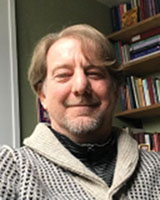 Robert Karp
Robert Karp
Robert Karp, M.Ed. is a consultant, educator, writer, and social entrepreneur informed by the insights of the philosopher and social activist Rudolf Steiner. Robert is a long-time leader in the sustainable agriculture movement in the US and is the former executive director of the Biodynamic Association and of Practical Farmers of Iowa. Robert’s writings include Toward an Associative Economy in the Sustainable Food and Farming Movement; Social Justice in the Light of Anthroposophy; The Sacred Wound: Understanding and Responding to the Call of Grief; and Agriculture and the Sacred, which was published as a chapter in the book Journeys and Awakenings, Wisdom for Spiritual Travelers, published by Sacred Spirit Books. You can learn more about Robert and find many of his writings on his website at www.robertkarp.net
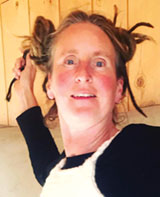 Monika Pudelko
Monika Pudelko
Monika Pudelko, originally from Germany, is a certified and experienced Waldorf teacher, eurythmist, biodynamic gardener, knitwear designer, off-grid homesteader, and initiative founder in Manitoba, Canada.
She has been stewarding the land where the festival is going to take place since 2016, introducing the biodynamic preparations to Manitoba in 2015, and building an Earthship with an all-year-round greenhouse in organic architecture.
Monika is developing her farm and community and is giving classes and hosting events.
Opening Physics towards the Etheric
Working Together Group C
Facilitators: Gopi Krishna
Many topics in modern research in Physics can be best described as “knocking on the doors to Goethean science”. As experimental results proliferate, older theories continue to break apart at the seams, which each generation is quickly patching up without addressing the root problems. If the root problems are addressed, they lead to a description of the etheric, and this is what is of value for real progress. I would be pointing out these root issues in a number of fields – energy, heat, color, electromagnetism, etc. and relating it to current state-of-the-art in those fields.
Section Affiliation: The Natural Science Section
Team Members: Dr. Gopi Krishna
Number of Participants: Open to all
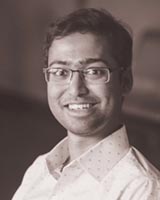 Gopi V. Krishna PhD
Gopi V. Krishna PhD
Born in Bangalore, India, Gopi has had a lifelong interest in physics, earning his PhD as a researcher from the University of Houston. He has authored numerous journal articles on experimental and theoretical semiconductor physics, and presented his work in multiple international conferences.
Gopi’s current research focuses on the foundations of physics in the fields of gravitation, electromagnetism, optics and materials science. He also researches the inherent assumptions embedded in such foundational works as Newton’s Principal and Maxwell’s Electrodynamics, re-evaluating them in the context of Goethean Phenomenology, and his own experimental work. He bases this work on the ground-breaking accomplishments of Goethe and Rudolf Steiner, particularly in the philosophy of science.
Gopi is passionate about establishing Steiner’s socioeconomic legacy so that a healthy Threefold Social Organism can be set in motion and in which independent scientific research can be conducted in freedom. To this end, he founded The Foundation for Cultural Renewal in 2019 and The Utah Economic Coalition in the midst of the 2020 pandemic to bring about this possibility based on the principles of Associative Economics.
Virtuous Reality: How Do We Teach into the Future?
Working Together Group D
Facilitator: Diane Walters
In the Age of the ‘Digital Revolution’, Waldorf education continues to hold core human values related to human development at its heart. As technologies rapidly grow, the age-old question of what it truly means to be a human being remains vital. At the forefront of the future of Waldorf education is the effort to maintain the values of love, trust, imagination, collaboration and common sense; strengthening core resilience to meet the emerging future.
We invite your participation to explore new imaginations of our human becoming through conversation, movement, play and biography. Welcoming the tension of the unknown through the arts invites an embodied expression of pedagogical wisdom.
We will explore early childhood to Adult Education through four separate experiences:
Early childhood: ‘The Disappearing Child. The press of modern life upon the life rhythm of the young child.’
Middle Childhood: ‘The Unfinished Lesson: How do we leave room for the students?’
Adolescence: ‘Wrestling with the Tempter: The struggle of attention.’
Adult Development: ‘A Covenant with the Future: Co-creating with purpose.’
Section Affiliation: Pedagogical Section
Team Members: Diane Walters, Barbarah Nicoll
Number of Participants: Unlimited
Diane Walters
Experienced mentor/evaluator and public speaker with a deep-seated passion for education in the contemporary classroom, Diane is skilled in E-learning, classroom management, curriculum development, elementary, junior high and secondary education, and educational leadership. She has a strong anthroposophical background with a Master’s Degree in Education from Sunbridge College (Waldorf training); curative training in Camphill Special Schools, as well as a 6 year biodynamic training. Diane brings all of this to the table in emergent conversation-based dialogue with her online and in person mentorships. Her podcasts titled ‘Integral Teaching’ are found on all platforms and she is currently offering a series of online course development ‘Trade Secrets’. The first course ‘Enlivened Teaching Through Story’ is found on her website: www.teachingintothefuture.com. Diane is also a potter! www.earthstudiosonline.com She lives in Nelson, BC.
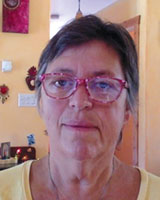 Barbarah Nicoll
Barbarah Nicoll
Barbarah is a lifelong student of anthroposophy, a certified Waldorf High School Teacher, mentor and educator of teachers, youth and graduate learners, initiator of innovative businesses, community projects, and facilitator of workshops, seminars, events and trainings. Passionate about human development and the arising of heart thinking, Barbarah engages with the arts, including expressive arts, the art of Goethean conversation and social eurythmy, to build inner strength and resiliency for meeting the challenges of living with developing consciousness in our times. Barbarah is a EdD student in Educational & Professional Practice, Waldorf Education, Antioch University and holds certification in Liberating Structures, Unarmed Civilian Peacekeeping, Social Eurythmy, Improvisation for the Classroom, The Art of Facilitation and Social Presencing Theatre. Barbarah lives in the small rural community of Glade, B.C. close to mountains, rivers, friends and family, including grandchildren.
Anthroposophy in the Americas
Working Together Group E
Facilitator: Sebastian Bilbao
Spiritual Science takes into account the influence that geological forces have in shaping the folk souls of the inhabitants of each distinct region. In Eurasia, those forces run East-West while in The Americas they run North-South. The 1923 Christmas Conference highlights the Eurasian East-West flow by transitioning the development of Anthroposophy for the intellectual folk soul of the central Europeans to the feeling folk soul of western Europeans and beyond.
Is that east-west Anthroposophical gesture suitable for the inhabitants of The Americas? Should Anthroposophy in The Americas pick up the inherent North-South geological gesture flowing along the mountain ranges of their continent? This track will explore the potential north-south alignment of current Anthroposophical work in The Americas.
Section Affiliation: Social Science Section
Team Members: Sebastian Bilbao, Gopi V. Krishna Ph.D. Physics. President Utah Economic Association
Remote contributors: Are Thoresen, Norway.
Joan Mele, President Banca Etica, Former Vice President Triodos Bank (Spain)
Pablo Porcel, Anthroposophical Medicine (Chile)
Luigi Morelli, Anthroposophical Researcher & Author (USA)
Kenneth Mcalister, Anthroposophical Medicine (Canada)
Number of Participants: Open to all in person or via zoom.
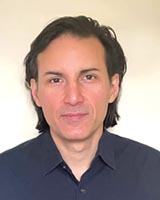 Sebastian Bilbao
Sebastian Bilbao
Sebastian Bilbao’s path into Anthroposophy was solidified by the late Paul Hodgkins with a Foundation Course in Anthroposophy at the former Rudolf Steiner Center of Toronto in 2010. The socio-economic downturn of those years made Steiner’s Economic Course and The Threefold Social Organism his primary interests and fields of research. He now collaborates with colleagues all around the world on these topics. He is also a participant in the Economics Conference of the Goetheanum and a member of the School of Spiritual Science, Visual Arts, and Social Sciences Sections. Born in Guatemala, Sebastian has lived in Europe, Latin America, and North America. He currently lives in Montreal, Quebec. You can follow his work at (https://medium.com/econosophia)
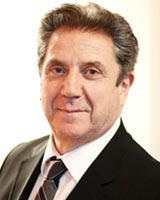 Joan Mele
Joan Mele
With more than 40 years of professional experience in the banking sector, in January 2015 he resigned from his position with Triodos to promote ethical banking in Latin America and dedicate himself fully to disseminating ideas on conscious economics, sustainable companies, and education in values while maintaining a close collaboration with Triodos Bank as a trainer and member of the Advisory Board.
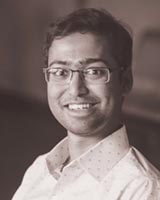 Gopi V. Krishna Ph.D.
Gopi V. Krishna Ph.D.
Born in Bangalore, India, Gopi has had a lifelong interest in physics, earning his Ph.D. from the University of Houston. As a researcher. He has authored numerous journal articles on experimental and theoretical semiconductor physics and presented his work at multiple international conferences.
Gopi’s current research focuses on the foundations of physics in the fields of gravitation, electromagnetism, optics, and materials science. He also researches the inherent assumptions embedded in such foundational works as Newton’s Principia and Maxwell’s Electrodynamics, re-evaluating them in the context of Goethean phenomenology, and his own experimental work. He bases this work on the ground-breaking accomplishments of Goethe and Rudolf Steiner, particularly in the philosophy of science.
Gopi is passionate about establishing Steiner’s socioeconomic legacy so that a healthy Threefold Social Organism can be set in motion and in which independent scientific research can be conducted in freedom. To this end, he founded The Foundation for Cultural Renewal in 2019 and The Utah Economic Coalition in the midst of the 2020 pandemic to bring about this possibility based on the principles of Associative Economics.
The Human Heart, a Source of Light, Life and Love
Working Together Group F
Facilitator: Dr. Branko Furst
Most of us are familiar with the abstract notion that what streams to the earth from the sun as a source of warmth, light and life, also radiates on a microcosmic scale from the beating heart. The question can be asked whether these high-faulting, even poetic ideas have anything to do with the actual physiological processes? While a living connection between the cosmic and the human heart was a matter of semiconscious, dream-like experience for the peoples of ancient India, Persia and Egypt, and was at the core of Hippocratic teachings, this knowledge gradually sunk into the depths of the unconscious.
However, with the advent of the consciousness soul, since the beginning of the 16th century these ideas surfaced again, albeit in a materialistic, intellectual form. Thus, a new vision of the human being arose, no longer rooted in atavistic clairvoyance but based on exact anatomical dissection and interpreted in view of the emerging empirical sciences of physics and chemistry.
A sizable library of research has since been written on the topic of the cardiovascular physiology alone, however, the intuitive wisdom that shone from the ancients is nowhere to be found. In its place we are left with a reductionist image of the human being which obscures its essence, denies freedom, and hastens the disintegration of the social organism.
Fortunately, a voluminous research based on Goethean method has been given to us by Rudolf Steiner through the anthroposophically extended science of the spirit. It encompasses the evolution of humanity in its earthly and cosmic aspects and sheds new light on every detail of its existence. It is our task to examine the findings of contemporary science and medicine, validate what stands up to the rigor of the spiritual-scientific investigations, and thus help build a truer image of the human being.
For example, while the excess warmth produced by the heart is dismissed by physiology as “wasted heat”, a mere “mechanical inefficiency of the pump”, we are given to understand on the basis of spiritual-scientific research that warmth generated by the heart is a bridge between the physical-etheric and the soul-spiritual members of the human being. Since the mechanistic thinking can grasp only what is of physical-chemical nature, the qualities of life, let alone of light and love, radiating from the human heart, simply cannot be addressed by the conventional paradigm. However, the great physiological dogma that the heart is a source of blood propulsion has recently been overturned purely on phenomenological grounds. It is amply supported by examples from experimental physiology and clinical medicine. Having unburdened the heart of the task it does NOT perform; the door has now been opened to explore body, soul, and spirit as the basis for a truly human physiology.
The aim of this workshop is to outline the seminal research which connects the conventional knowledge with the anthroposophical understanding of the heart and circulation. Participants are encouraged to bring their questions.
Section Affiliation: Medical Section
Facilitator: Dr. Branko Furst
Number of Participants: 20 – 30
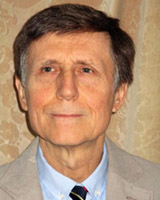 Prof. Branko Furst
Prof. Branko Furst
Prof. Branko Furst, MD, FFARCSI is a graduate of the University of Ljubljana Medical School, Slovenia and completed residency in anesthesiology in Portsmouth and London, UK. The pursuit of an academic career took him to the US (1987) where he joined the faculty at the department of Anesthesiology at Texas Tech University Medical School in El Paso, Texas. Since 1993 he was on the faculty at Albany Medical College and retired from clinical duties in Oct. 2021.
His main research interest is in building the bridge between the conventional and anthroposophical understanding of the human being. He has authored several peer reviewed articles and a monograph The Heart and Circulation – An Integrative Model, currently in its 2nd edition. He has lectured on anthroposophical themes and aspects of circulation to professional and lay audiences in the US and internationally.
Introduction to Anthroposophical Meditation
Working Together Group G
Facilitator: Robert McKay
Over six sessions, Robert McKay will provide an introduction to the purpose and practice of anthroposophical meditation, adhering closely to Rudolf Steiner’s explanation in Knowledge of the Higher Worlds and Its Attainment and other key texts. The sessions will include explaining how the meditative practice leads to the transformation of the individual as she moves toward becoming capable of independent research in the elemental, astral and spiritual realms. Each session will include opportunities to practice meditations and share relevant experiences with group participants.
Section Affiliation: General Anthroposophical Section
Facilitator: Robert McKay
Number of Participants: 20 – 30
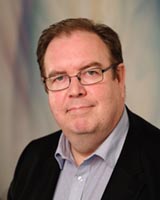 Robert McKay
Robert McKay
Robert McKay is a student of Rudolf Steiner’s work with a special interest in the meditative path. Robert provides workshops and lectures on anthroposophical meditation, always beginning with the important caveat for participants that he is not qualified as a spiritual teacher. He offers his partial and incomplete understanding of anthroposophical meditation as a basis for honest conversation among seekers. He believes a student of the path must be a student of the path, meaning that in addition to meditating, it is critical to strive to understand meditation in the context of anthroposophy in general. With some meditative practice comes better questions which lead to a closer study of Dr. Steiner’s writings which in turn leads to more effective meditative practice. Robert is the Chair of the Board of the Rudolf Steiner College Canada and a member of Anthroposophy in Toronto.
Schedule
Friday, August 11, 2023
3:00 WTG1 Introduction to Anthroposophical Meditation
Robert McKay, General Anthroposophical Section
You are Designed to Achieve Enlightenment
The spiritual world has created human beings such that it is entirely natural, provided we are trying to be a good person, to move toward enlightenment over successive earthly incarnations. We are designed to achieve enlightenment and supported through the workings of karma to reach this developmental goal. In this session, we will come to understand this context and then examine how the meditative path accelerates this natural process. We will consider what is required of the person who decides to undertake this work and how this decision forms a critical moment in the path of human becoming. Specific meditations that will be included:
- The path of veneration
- Listening to past enjoyments
Saturday, August 12, 2023
11:30 WTG2 Introduction to Anthroposophical Meditation
Robert McKay, General Anthroposophical Section
Occult Doorways are Hidden in Plain Sight
The anthroposophical path of knowledge begins by identifying aspects of everyday experience that have unnoticed developmental potential. Much of the path consists of the spiritual teacher identifying these occult doorways that are hidden in plain sight and showing the meditant how to focus on these aspects of everyday experience so as to set development forces in motion. Specific meditations that will be included:
- Meditating on the forces of growth and decay
- Listening through sound to soul
3:00 WTG3 Introduction to Anthroposophical Meditation
Robert McKay, General Anthroposophical Section
Working with an Anthroposophical Verse
Dr. Rudolf Steiner provided many verses or mantras for people interested in developing higher consciousness. In this session, we will learn what a verse is, how an initiate creates a verse, and how to work with them. The session will include an overview of key anthroposophical verses as well as an opportunity to work with one or more verses.
- Verse: Morning and Evening Verse (In purest outpoured light…)
- Verse: Michael Verse (Michael, Lend me your sword..)
Sunday, August 13, 2023
11:30 WTG4 Introduction to Anthroposophical Meditation
Robert McKay, General Anthroposophical Section
Some Specific Meditations: The 8-Fold Path and the 6-Fold Path
As the meditant proceeds along the path, they are bringing their soul nature into a higher degree of order and regularity. This eventually leads to the creation of new organs which are required for the opening of a life in the soul/spiritual realms. In the third session, we will look at the attributes the meditant must acquire in order to support two of these higher organs – the 8-fold path which supports the development of the organ that develops in the region of the larynx, and the 6-fold path which supports the development of the wonderful spiritual heart organ. Specific meditations that will be included:
- The 8-Fold Path
- The 6-Fold Path
3:00 WTG5 Introduction to Anthroposophical Meditation
Robert McKay, General Anthroposophical Section
Some Specific Meditations: Thought Focus, Virtue Focus, Image Focus
The anthroposophical meditative path requires the development of “I” forces to a high degree. Nowhere is this more evident than in the exercises that can be described as thought-focus, virtue-focus, and image-focus. Specific meditations that will be included:
- Thought Focus: Wisdom lives in flowing light.
- Virtue Focus: Working with the mobile soul shapes of the human virtues
- Image Focus: The Rose Cross – Meditation and subsequent image focus
Monday, August 14, 2023
11:30 WTG6 Introduction to Anthroposophical Meditation
Robert McKay, General Anthroposophical Section
Preparing to Meet the Lower Guardian
Achieving knowledge of the higher worlds requires the development of the entire human being. This necessarily includes moral development. The meditant must come to align themselves more and more with divine purpose, which for human beings means a commitment to truthfulness, loving kindness, and practical service/achievement. Gradually, the meditant gathers the strength to see who they really are – a spiritual work in progress, a mixture of talents and weaknesses, suffused with both good and evil. The meditant must take responsibility for who they really are, without self-deception or excuses, if they are to work alongside higher beings. The path prepares the meditant for this journey of self-discovery and self-possession, leading eventually to the meeting of the Lower Guardian. Specific meditations that will be included:
- Seeing Yourself as a Stranger
- The Golden Rule of Spiritual Training
The Kenya Project, Changing Children’s Lives for the Good
Working Together Group H
Facilitator: Sarnia Guiton
Supporting Courage: Can you imagine founding a Steiner/Waldorf school without assuming tuition as income? Neither can I, and yet … the Rudolf Steiner School in Kenya is doing just that and bringing Waldorf education to underprivileged children. Most children at this school come from desperate situations, poverty, abuse, malnutrition, often with no competent or no living parents, and every other calamity you can imagine. Some need to board for safety reasons; some walk a few miles to and from school every day – some alone and some with an ‘auntie’. Some are lucky enough to come on a school bus. Their young lives are changed, and they have a future ahead of them. How can we support this courage and this extraordinary school
Section Affiliation: Social Science Section
Team members: Sarnia Guiton, Dominic Mwaura
Number of Participants: unlimited
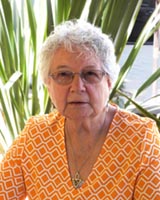 Sarnia Guiton
Sarnia Guiton
Sarnia Guiton was born and grew up in England but has been a Canadian citizen for many years. Sarnia has been a registered nurse, au pair nanny, mother, active Quaker, homesteader, Waldorf teacher, and administrator for two Waldorf teacher training organizations, the Rudolf Steiner College in California and the West Coast Institute for Studies in Anthroposophy in British Columbia.
Somewhere along the way, she became a member of the Anthroposophical Society and then of the School of Spiritual Science. Sarnia also organizes and leads anthroposophical tours in Europe and beyond, and volunteers in medical clinics for the Maasai in Kenya. Sarnia has now retired, has settled in Nairobi, Kenya, and is involved with both the Nairobi Waldorf School and the Rudolf Steiner School, Mbagathi, in study sessions and finding sponsors for children so they can receive a Waldorf education.
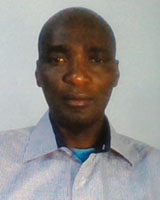 Dominic Mwaura
Dominic Mwaura
Dominic Mwaura was born and grew up in Kenya. He is a Kenyan citizen but also a Canadian citizen (dual citizenship). Dominic has worked and lived in a Catholic religious congregation called Brothers of Our Lady Mother of Mercy, where he underwent three stages of Catholic religious brotherhood initiation; that is, aspirant, postulant, and novitiate stages.
Later in life, Dominic trained as a Waldorf teacher in Kenya through the East Africa Association of Waldorf/Steiner Schools. After emigrating to the U.S.A. Dominic worked and studied curative education at the Camphill School of Curative Education (presently, Camphill Academy) which is domiciled in Camphill Special School (U.S.A).
Since settling in Canada, Dominic has worked with the following organizations providing services for those with special needs, mental health issues, drug addiction, or homelessness: L’Arche Winnipeg Community, Main Street Project Winnipeg, Supervisor in Fairfax Community Inc., New Directions for Children, Youth, and Adults. Dominic has also done some training in client-centered therapy counseling at the Embulbul Educational and Counseling Center in Kenya.
Cain and Abel – Bridging Traumatic Family Divides through the Lifespan
Working Together Group J
Facilitator: Yiana Belkalopolos
This Working Together group adapts Fox and Salas’ “Playback Theatre” and Augusto Boal’s “Rainbow of Desires” therapeutic theatre practices to highlight how to bring anthroposophical and trauma-informed responsiveness to children caught in parent divorce conflicts. This group is for teachers, parents, doctors, therapists, and other community members. It weaves anthroposophical and psychotherapeutic practices for helping families and community members to bridge divorce or partner break-up for the sake of the children and adults living, sometimes lifelong, in the middle of parental belief and philosophy battles. The group extends a world view to modern-day conflicts affecting everyone in our times with an investigation into the soul-spiritual consciousness of the Cain-Abel dichotomy according to Rudolf Steiner. The structured theatre process allows an active, collective inquiry and a skill-set exchange into how to manage the divisive tensions of our time in ways Rudolf Steiner suggested are appropriate in the era of the Consciousness Soul.
Section Affiliation: General Anthroposophical Section
Team members: Yiana Belkalopolos
Number of Participants: Maximum 21 Participants
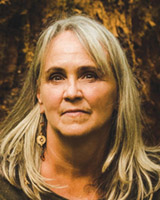 Yiana Belkalopolos
Yiana Belkalopolos
Yiana has experienced, firsthand, the childhood trauma that can come from living through a bitter parental divorce-divide. Her life has led her from her Christian origins to explore the world – learning yogic and Buddhist meditative practices, indigenous Shamanism, and techniques for healing the emotional and nervous systems. Rudolf Steiner’s work opened a way for her to make connections between many streams of spiritual understandings that permeated her life and helped her to understand her own esoteric experiences. She took Waldorf teacher training in Toronto following substitute and assistant work in classrooms at the Nelson Waldorf School. She then led a healing arts initiative over three years at an orphan home in Shyampur, India. In 2015, on the advice of mentors Dr. William Bento and Dr. Virginia Sease, she finished a master’s degree in transpersonal clinical counselling in the US to complete the “Pearl and the Hut” books on the child of divorce in the light of anthroposophy. Bringing an anthroposophical perspective, she began work as a registered clinical counsellor with teachers, parents, and traumatized people of varying cultures and spiritual streams.
Indigenous Voices of the Americas
Working Together Group K
Facilitators: Aiona Anderson and John Winkler, Erich Otten, Unchatwa, Wendy Charbonneau, Elizabeth Carmack, Tom Altgelt
Will you be my sister? Will you be my brother, that together we create a family of true relations? In a world of privilege, multitudes of humanity struggle under multiple forms of colonization. The weight of cultural and language loss, of violent discrimination, of economic disadvantage, create immense hindrances for individuals and the peoples to whom they belong; forever challenging their sense of dignity and self-worth.
This Working Together stream is dedicated to taking steps toward a future humanity, one based on the sacredness of each human being. Its intention is to create a safe and open space dedicated to deep, heart listening – that in this safe receptive space we can allow the stories of those who have carried this spirit-imagination of humanity, the indigenous peoples of North America, to sound and be heard in the depth of our listening souls. In this practice of speaking from our hearts, and allowing this speaking to awaken within our own hearts, we take the steps of awakening new soul faculties we need to realize humanity’s future.
Section Affiliation: General Anthroposophical Section
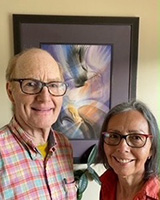 Aiona Anderson and John Winkler
Aiona Anderson and John Winkler
Aiona Anderson is from the Nłeʔkepmx Nation of BC. Canada. She will share a glimpse of her life, lived on an “Indian reservation” until she and her siblings were forcibly relocated to government and church-run “Indian school.” Her sharing will include how she met anthroposophy as a single mother with three children. This brought her to Rudolf Steiner College, where she earned her degree in Waldorf Education, and the Sacramento Waldorf School, where her children graduated and her 3 grandsons now attend.
In Sacramento she met and married John Winkler, a long time member of the Anthroposophical community in Fair Oaks, Ca. He is an artist with a training in Waldorf education. They will share aspects of their journey together as individuals raised in culturally diverse worldviews, brought together by common beliefs and values, including their spiritual studies in the work of Steiner.
Returning to Vancouver, Aiona worked as a Chemical addiction counsellor in Vancouver and studied for a BGS degree in chemical addictions. She also taught at Nicola Valley Institute of Technology (Indigenous Public Post-Secondary Institute). In 2016 Aiona graduated from the University of Victoria, majoring in Indigenous Language Revitalization. John joined the Cascadia Society, a Camphill Community in North Vancouver, as an art educator.
Aiona and John currently reside in the unceded territory of the Nłeʔkepmx and Syilix Nations BC, her home territory. Here they continue to grow on their journey together, with love, understanding, respect in search of the answers to the healing possibilities of language, cultural revitalization with spiritual guidance, going forward in real time.
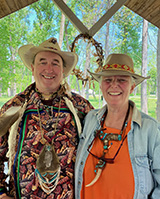 Unchatwa
Unchatwa
Unchatwa was blessed in October 2019 by the corn mother with the dream which detailed her power to heal intergenerational trauma in all beings and the ceremonies he was tasked to bring forward. His life’s work is carrying the corn mothers’ vision for healing and ceremonies forward. On May 18, 2023 the first of three ceremonies detailed in the Corn Mother Dream was held at Schodack Island State Park in New York.
Unchatwa was initiated into the healing arts at the age of 26. He spent the next 25 years on his own healing journey from addiction, severe childhood trauma and mental illness. During those years there were significant spiritual influences and events including in 1994 when he had a healing vision where he received his name. That vision led to his initiation to carry medicine through a death ceremony.
In 2009 he met his Buddhist friend and teacher Yoonok Kim who taught him about ancestral healing through burying what he carried in the soil in what she called the Happy Universal Garden. He also studied Non-violent Communications and Dialectic behavior Therapy which were personally transformational, and he has incorporated those practices into his healing work.
In 2010 he read the book Seven Herbs Plants as Teachers by his friend and mentor Matthew Wood, and he was catapulted into an 8 year journey of intimacy with his new friends Easter Lily, Yerba Santa, Iris, Sagebrush, Cat’s ear, Black Cohosh and Lady’s Slipper. That work was instrumental in his development, understanding and co-creation of a corn flower medicine which he has carried since the super full moon full lunar eclipse in September 2015.
Along the way Unchatwa has had the opportunity to hold ceremonies and help others on their healing journeys.
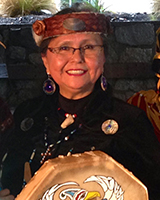 Wendy Charbonneau
Wendy Charbonneau
Squamish Elder Wendy Charbonneau is a direct descendent of Chief Capilano on her father’s side and Mulks the great guardian of Squamish legends and folklore on her mother’s side. She grew up on the Mission Reserve in North Vancouver attending St Paul’s Indian Day School, having been brought home from Residential School by her grandmother. She attended high school at St Thomas Aquinas. Once she had qualified as an Early Childhood Educator at Capilano University, she started to work at Hiwus Feasthouse, where she touched the lives of many children through Indigenous storytelling as well as native arts and crafts. Over the past twenty years Squamish Elder Wendy Charbonneau has volunteered at hospitals providing native spirituality and healing songs. She has also worked at Talitha Koum House “Women in Transition” providing storytelling, drumming, and craftwork. More recently she accepted three commissions from the Cambridge Music Conference.
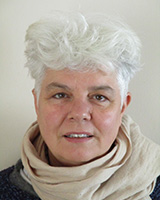 Elizabeth Carmack
Elizabeth Carmack
Elizabeth Carmack is a member of faculty at Capilano University with a special interest in academic writing discourse and critical applied linguistics. She has graduate degrees in both English Literature and Applied Linguistics having subsequently taught at Moscow State University in Russia and Tsinghua University in China as well as Simon Fraser University and the University of British Columbia. Inspired by her sister Catherine Carmack (1957-2003), Elizabeth founded the Cambridge Music Conference in 2000. As artistic director she has run fourteen conferences in England, Canada and Switzerland, commissioning and premiering fifty new pieces of music by leading British, Canadian, Russian and American composers. The Cambridge Music Conference is an initiative dedicated to music and healing that has not only been recognised by the Anthroposophical Society, but Cambridge University.
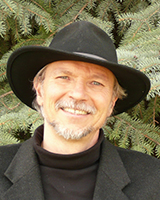 Tom Altgelt
Tom Altgelt
Tom Altgelt first found anthroposophy and the Christian Community in Stuttgart, Germany over four decades ago. Tom and his wife Dorothea moved to Camphill Lehenhof in 1981. From there they moved to Temple, New Hampshire, where they joined the Lukas Foundation and the local Anthroposophical Branch. Tom eventually built up a renowned New England landscape architectural office and became active in the work with flow forms. After eight years he was invited to work on the Garden of Nations in Stuttgart, Germany. Tom and Dorothea then moved to Boulder Colorado, where they became active members of the local Isis Sophia Branch. Tom took on the organization of the Holy Nights and taught basic courses in anthroposophy using books such as “How to Know Higher Worlds.” He has published a number of articles in “Lilipoh” and “Being Human” magazine. Tom is a first-class member and has been working with the sevenfold rhythms of the Foundation Stone Meditation for over two decades.
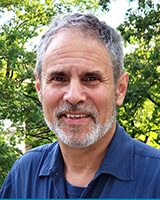 Luigi Morelli
Luigi Morelli
Luigi Morelli has lived primarily in Belgium and the US. He acquired a BS in Botany/Ecology (1979) and an MS in environmental sciences (1981). In his writings he approaches American culture and history by weaving it with its legends and myths in a scientific and imaginative manner; all of this he relates to the present of American change methodology, some of which he practices and teaches (e.g.: Nonviolent Communication, participatory facilitation). He has written several books including Spiritual Turning Points of North American History; Stories and Legends for a Compassionate America; Accelerating Social Change: Impacting Our World While Transforming Ourselves, and recently Searching for the Spirit of the West. Luigi has a passion for social change from a cultural perspective. He has had a long experience in working with the disabled in intentional communities like Camphill and L’Arche International, and in living in cohousing. For ten years previous to that he established an ecological landscaping partnership in Santa Cruz, CA, that survives to this day thanks to his partner. He presently lives at Headwaters Cohousing (Cabot, VT), where he facilitates and offers other community building trainings and interventions.
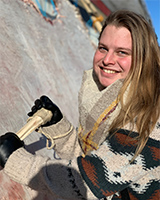 Erich Otten
Erich Otten
Erich Otten is an educator, birth attendant, lactation counselor, and 2SLGBTQ+ advocate. Anthroposophical principles were a strong feature from early childhood and Erich wanted to be a Waldorf kindergarten teacher. Erich holds a formal BA(hons) in Sociology from Algoma University/Shingwauk Kinoomaage Gamig, an Ontario College Diploma in Early Childhood Education from Fanshawe College, and is currently completing a Waldorf Early Years Program (Birth to Seven) with Little Lions Waldorf Education Centre. Erich has kinship ties to Onyota’a:ka and Omushkeego Cree peoples and is a member of the East Frisian diaspora in Canada. Erich has supported healing and reconciliation through education and is a traditional helper serving Elders each year at ceremonies in the Great Lake regions (Robinson Huron Treaty and Robinson Superior Treaty territories.) Erich is co-author of Cree Finds Her Way, which is one of a three-part book series that traditionally educates children on the importance of self-identity they work extensively with 2SLGBTQ+ youth and Elders and works with individuals, groups, and organizations on developing safer spaces that celebrate 2SLGBTQ+ youth so that we survive, thrive, and live long healthy lives. Erich lives on the traditional territory of Fort William First Nation and the shores of Gitchi Gaamii with their partner Alex, four dogs, and horses.
Anthroposophy’s Grasp of Technology
Working Together Group M
Facilitator: Andrew Linnell
Throughout Rudolf Steiner’s years of lecturing, he warned about the dangers of, as well as the necessary role for Technology. In his last Letters to Members he explained how evolution has brought us to a mastery of the physical, of Nature, but now technology will pull us into sub-nature. This must happen. But for it to be of the good, we must use our Freedom to rise up into super-nature (an awareness of the etheric) in balance with our descent into sub-nature. Throughout Steiner’s lectures where he discusses the dangers of Technology, he offers us the counter balances.
Assigned to certain geographic regions are tasks to be fulfilled. Steiner describes some of these tasks in lecture 3 of the Challenge of the Times where he discusses three occultisms: Eugenic in the East, Hygienic in the Middle, and Mechanical in the West and North America in particular. America has a defined role for the 7th Post-Atlantean Cultural Age for which our technological developments play a key role. The Initiative of MysTech is to help humanity to realize this Mechanical Occultism at the right time in the West.
Section Affiliation: Natural Science Section and Math & Astronomy Section
Team Member: Andrew Linnell
Number of Participants: Zoom event, open to festival participants via zoom and through our Virtual Event (coming soon).
3:00 WTM1 Anthroposophy”s Grasp of Technology (hybrid format)
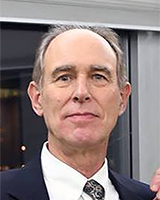
Andrew Linnell
Andrew Linnell is co-founder of MysTech (mystech.org), an Anthroposophical organization seeking to realize Rudolf Steiner’s indications on Mechanical Occultism. In 1978-79, he took the Foundation Year at Emerson College, Sussex, UK. He has served as president of the Boston branch of the Anthroposophical Society and as admin to several Anthroposophical Facebook groups. He is an active member of the Natural Science Section and its steering committee. In 2013, he retired from a 42-year career in the computer industry where he had served as CTO or VP for small companies. He is the author of three art history books, two children’s books, and seven study guidebooks that explore the role of technology in human evolution.

